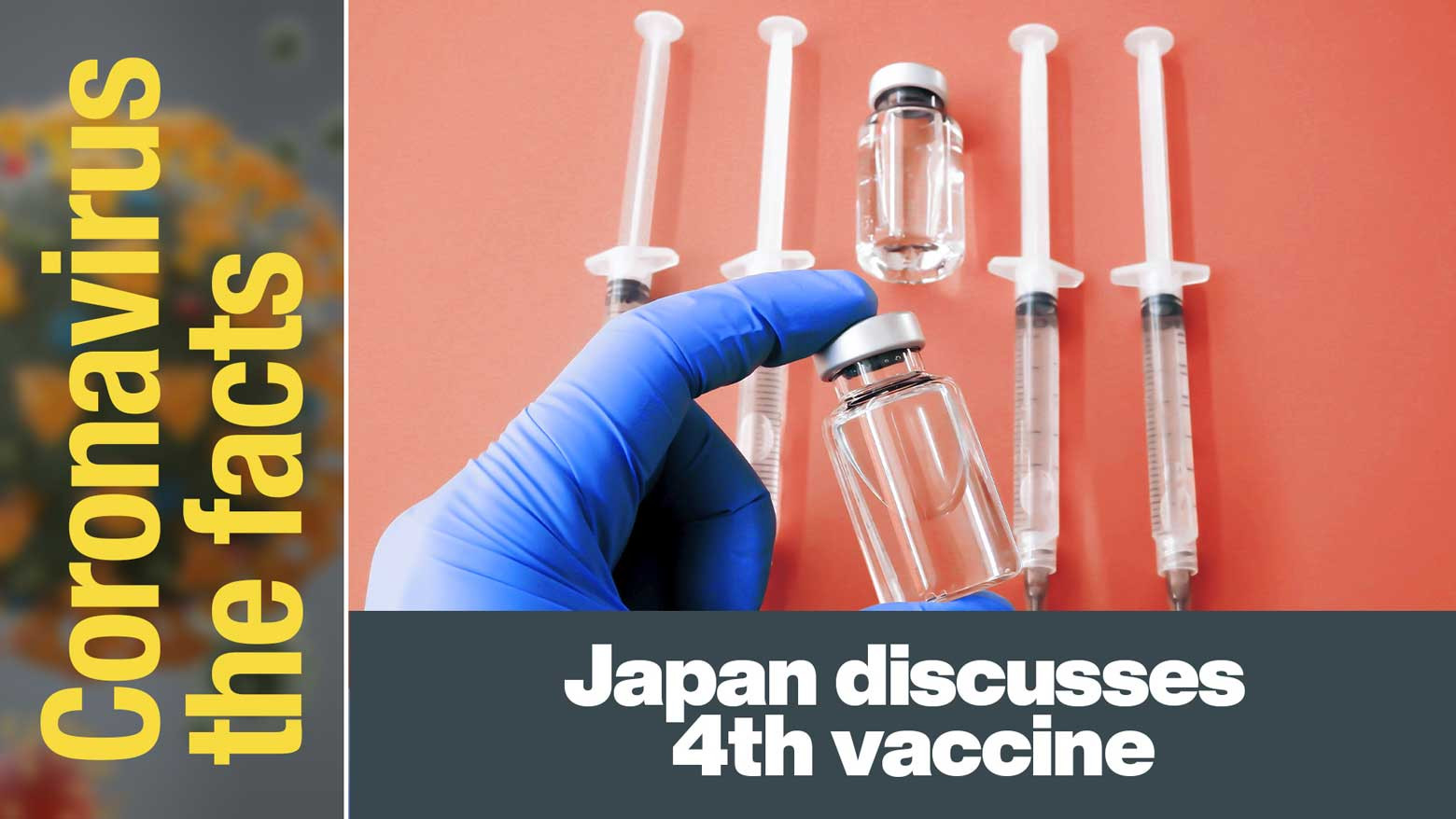This is our series on key coronavirus-related information. Click here to read other installments: #Coronavirus the facts. Find the latest information and answers from experts on everything COVID-19.
Fourth dose under discussion
Japan's health ministry is considering whether to authorize a second booster, or fourth dose, of a coronavirus vaccine as the efficacy of a third dose reportedly wanes over time. Though no decision has been taken yet, the ministry says local authorities should complete the groundwork for a rollout, arranging vaccination coupons and venues, by around the end of May.
Slow uptake for booster shots
Though more than 80 percent of Japan's elderly people have received a booster shot, the rate for the population as a whole was just 44 percent as of April 7. Some experts say the delay is one of the reasons for the failure to bring the infection rate under control.
Research in Israel
Research has shown that a third shot is more effective against the Delta variant than the currently dominant Omicron variant. The efficacy also declines as time passes. As a result, some nations have already begun administering fourth shots.
On March 16, the New England Journal of Medicine published the results of a study in Israel that found the first booster was key to maximizing immunity, and that a second booster was effective primarily in restoring antibody levels that had diminished since a third dose.
The researchers looked at 154 medical workers who had received a Pfizer shot for their fourth dose, and 120 medical workers who received the Moderna shot. They found that both vaccines were only one tenth as effective against Omicron as against the original virus. They say a fourth dose for young, healthy people may have only marginal benefits.
Pfizer claims that when people aged 60 or older receive a fourth shot more than four months after a third shot, it cuts the number of infections in half, and reduces the number who develop serious symptoms by 75 percent.
Around the world
On March 29, the US Food and Drug Administration authorized fourth doses of the Pfizer-BioNTech and Moderna vaccines for people aged 50 or above who got their third shot at least four months ago, and for people under 50 who are immunocompromised.
The United Kingdom, France, Germany, South Korea and Israel are already offering second booster shots–in most cases limited to the elderly, residents of care homes, medical workers and the immunocompromised.
No need to rush
Immunologist Miyasaka Masayuki, guest professor at the Osaka University Immunology Frontier Research Center, says that even though the ability to prevent serious illness can decline, a resurgence of efficacy can be expected after a fourth shot, based on the data from Israel among other sources.
He says the level of neutralizing antibodies rises to a certain level after a fourth shot and that is enough from the perspective of immunology.
"Immune system could be weakened, especially in older people, and people with underlying health conditions such as diabetes and cardiac problems, so they are highly likely to be the target of the fourth dose," Miyasaka says. "We don't need to rush to provide a fourth dose, but it is important to prepare for it as variant strains with higher pathogenicity or infectivity could emerge."
As for the vaccine interval, he doesn't recommend receiving a fourth too soon after a third dose, and that leaving a long-enough interval can produce high-quality antibodies.
He says that a third dose activates the B cells, a kind of immune cell, that create antibodies, so before a fourth dose, waiting for a sufficient period to develop B cells is highly likely to produce antibodies that can respond to various variant strains.
Take the first booster, prepare for the next
Tokyo Medical University Hospital Professor Hamada Atsuo, an expert on infectious diseases, says it is good to provide a fourth shot to older people who have a higher risk of serious illness and medical workers about six months after their third. But, he also emphasizes that the current priority is to increase the coverage of third shots to more than 50 percent in April or May to seek an exit strategy to get society and the economy back on track. Our immediate challenge is to continue taking basic anti-infection measures and, at the same time, to bring daily life back to normal.
This information is accurate as of April 8, 2022.
